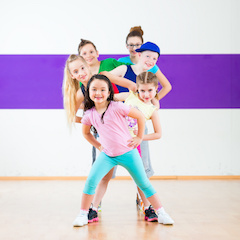Summer camp counselors play an important role as they help kids adjust to being away from home. At camp, a counselor leads activities, checks on the safety of the campers in their bunk and serves as a role model during every moment of their day. While the job is demanding, camp counselors report that they get back more from the experience than they ever imagined. Camp counselors are known for their active, fun-loving personalities, and these traits are found in those who are committed to creating the ideal experience for every kid that visits them in the summer.
Good Communication Skills
Throughout the day, a camp counselor may have to comfort a homesick camper, celebrate a winning sports team and reinforce camp rules. Each of these tasks requires the ability to adjust one’s tone to fit the situation. A quality camp counselor will be able to respond with sensitivity when it is necessary and address challenging situations with authority that makes every kid feel like a valuable member of the camp community.
Self-Motivation
Camp counselors spend the major part of their day with the campers in their group and they even stay in the same cabin. This means that counselors are responsible for establishing routines in their cabin regarding bedtimes, waking up and keeping things clean. Since a counselor is the one the rest of the group looks to for leadership, they must be the first one to notice when something needs to be done and immediately take action.
Detail-Oriented
There are a lot of details involved in planning events and each day at camp is full of special activities that are designed to foster the campers’ development. A camp counselor is not only responsible for keeping a head count of their group throughout the day, but they will also need to be able to keep track of things such as what equipment is needed for a hiking expedition and how to run through a safety check before taking the kids out on the water.
Physically Active
Being a camp counselor is a high-energy job that requires being able to work out and play alongside the younger campers. Camp counselors tend to enjoy activities such as archery, wakeboarding and fishing. Since their primary goal is to make sure no child feels left out or gets frustrated learning a new skill, they will constantly be interacting with the group in every activity so that they can foster an encouraging atmosphere.
Resilience
As anyone who spends time outdoors knows, anything can happen to the best-laid plans. Rain can come pouring down before a campfire gathering, or a tent pole can break on an overnight camping trip. When these things happen, camp counselors teach kids how to handle challenges by staying calm and working out a solution. From hosting an indoor sing-along to fashioning a tent pole from a branch, they will successfully rise to the occasion, no matter what comes their way.
While some of the best camp counselors were once campers themselves, it is not necessarily a requirement. Being a positive role model and recognizing the importance of giving each kid a memorable experience are the most essential traits to be found in a camp counselor. Although each day is full of serious responsibilities, it is well worth the effort when a young camper looks forward to the day when they can take on a position of leadership just like their favorite counselor.
Canadian Adventure Camp is a coed overnight summer camp for kids located on a beautiful private island in the wilderness lakes region of Temagami. Founded in 1975, it provides acclaimed programs to children from around the world! Visit site: http://www.canadianadventurecamp.com/campers/summer-camp-program/







